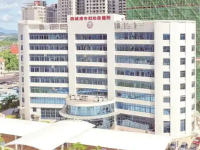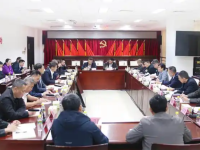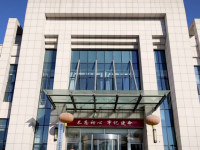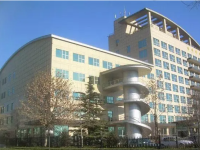GACC's Notice on Increasing Facilitation Measures for AEOs for Steady and High-quality Growth in Foreign Trade

To reinforce the function of credit management of the customs services, continuously serve authorized economic operators (AEOs) in a better way, and ensure the steady and high-quality growth in foreign trade, the General Administration of Customs of the People's Republic of China (GACC) has decided to augment existing management measures with the following new measures aimed at AEOs.
I. Less frequent inspection and reduced quarantine supervision
(I) Lowered sampling rates for inspection and quarantine on foods and cosmetics for export
Specifically, the rates will be reduced for AEOs exporting foods and cosmetics to below 20 percent of the standard management rate.
(II) Less frequent inspection for hazardous chemicals and dangerous goods for export during packaging processes on-site
A pre-declaration supervision model for the export goods in inspection lots will be given precedence for production-oriented AEOs exporting hazardous chemicals. The first group of products for declaration within an inspection lot will be inspected on-site, with subsequent groups to be released promptly upon review of documentation. For the packages of the export dangerous goods of AEOs, the performance testing cycle has been reduced to one year.
(III) Reduced inspection rates for biological materials for export
For the AEOs that, as mandated by foreign countries, need to be registered in foreign countries, priority will be given to them in terms of recommendation for registration. Export inspection and sampling rates will also be lowered for such AEOs. For the biological materials that do not required to be sampled, customs authorities may choose to combine remote video inspection with on-site inspection to accelerate the release of the goods. In addition, inspection will be streamlined for quicker release of specific-pathogen-free (SPF) laboratory rats for export for AEOs holding Laboratory Animal Production Licenses and Laboratory Animal Use Licenses, while such AEOs will be given priority for inspection and document issuance.
(IV) Less frequent on-site inspection for AEOs covered by the remote jurisdictional inspection reform program
Priority will be given to AEOs to include them into the pilot program for remote jurisdictional inspection, with the frequency of random on-site inspection to be minimized for AEOs in the program.
(V) Streamlined filing and registration procedures and reduced processing times for enterprises exporting aquatic products
Any enterprise exporting aquatic products, which has been registered in a foreign country, will be exempted from on-site evaluation when seeking to register the same types of products in the foreign country concerned, and will be recommended to register, provided that the requirements and product risk levels in the concerned foreign import country import are less stringent than those of the country where the enterprise was first registered. AEOs applying for the registration of aquatic raw material farms will also be given priority in registration.
A pilot program will be in place to allow AEOs to apply for quarantine for wood packaging materials imported for use with high-tech equipment in destinations. Designated food processing enterprises importing grains will be subject to classification management, with AEOs enjoying priority in this regard.
II. Reduced costs for enterprises in import and export
(VII) A pilot program for AEO tax guarantee exemptions to be piloted with select Customs authorities when available. Production-oriented AEOs accredited for over five years and meeting the following requirements may be exempted from tax guarantees specified in the two-step declaration in accordance with targeted measures for a certain issue upon request to the Customs authorities.
1. The enterprise has no overdue tax payments within the specified payment period;
2. The Customs authorities have never downgraded the enterprise's credit rating;
3. Enterprise credit management measures have not been suspended;
4. No administrative penalties have been imposed by Customs in the last five years;
5. Minimum annual tax payments have reached CNY 10 million for the past five years;
6. The enterprise asset-liability rate at the end of the past five years and the last month of the current year is below outstanding criteria for the industry according to the latest Standard Values in Enterprise Performance Evaluation issued by the State-owned Assets Supervision and Administration Commission of the State Council;
7. The enterprise cash coverage ratio at the end of the past five years and the last month of the current year must exceed outstanding criteria for the industry according to the latest Standard Values in Enterprise Performance Evaluation issued by the State-owned Assets Supervision and Administration Commission of the State Council.
(VIII) Extended time for voluntary enterprise disclosure. The timeframe for AEOs to voluntarily disclose tax-related violations in breach of Customs regulations without administrative penalties has been extended from six months to one year from the date of the tax-related violation.
(IX) Reduced inspection rate. Random inspections will be further reduced for AEOs not found during the previous year's inspection to have committed a breach.
(X) Broadened eligibility for facilitation measures. When the domestic consignee and consignor on the Customs declaration form are AEOs, the entity filing the declaration and the entity for consumption and utilization/production and sales have not breached any relevant regulations, the facilitation measures for the enterprise with the highest credit rating on the customs declaration form may be applied. In cases where no relevant regulations have been breached by enterprises, the pilot facilitation measures for AEOs may be applied to these enterprises' goods transported by logistics enterprises with the credit rating of an AEO upon the credit commitment of logistics transportation enterprises.
III. More intelligent facilitation measures
(XI) Facilitation measures implemented intelligently. It will be possible to identify or tag AEO information within relevant operational systems automatically for Customs operations made more efficient through intelligent prioritization, modification, and cancellation of import and export Customs declaration forms, port inspection of import and export goods, jurisdictional inspection, and sampling.
(XII) More broadly applied automatic AEO data exchange. In addition to the automatic AEO data exchange currently enjoyed with the European Union's Taxation and Customs Union and the Customs and Excise Department of the Hong Kong SAR, the exchange will be increased to include more countries for greater efficiency and timeliness of data sharing.
(XIII) AEO prioritization in the reform of smart Customs applications. AEOs voluntarily opening their enterprise resource planning (ERP) systems to Customs will receive preferential treatment in "Bonded services + ERP", or "Internet + Audit-Based Inspection" processes, providing AEOs priority in random inspections for high-tech goods, such as vacuum packaging, comprehensive inspections and verifications, and the reform of group-based inspection procedures.
IV. More precise enterprise service
(XIV) Better coordinated Customs services. AEOs will receive one-on-one coordinated services. Customs authorities will liaise with the relevant entities to address technical trade barriers faced by AEOs in the export of animal-derived foods abroad and any issues reported by AEOs in the implementation of facilitation measures in countries with mutual recognition agreements. Priority for credit establishment services will also be given to enterprises and upstream and downstream companies within the industrial and supply chains of AEO groups.
(XV) AEO prioritization in Customs external network application services. AEOs will receive preferential support for services such as electronic port card reissuance, information updates, and the replacement of lost cards. Priority will likewise be given to customer service requests from AEOs, with dedicated personnel assigned for follow-up visits.
(XVI) Support for high-quality AEO development in cross-border e-commerce. This facilitation measure aims to cover AEOs in the coordinated Customs-enterprise co-management framework designed for cross-border e-commerce. It includes the signing of cooperation memorandums between Customs and enterprises, implementing tailored policies, and supporting high-quality enterprise development and healthy and standardized industry growth.
(XVII) Promoting the expansion and upgrading of facilitation measures. The customization of facilitation measures for AEOs will be encouraged. Local governments will be encouraged to implement additional joint incentives tailored to local conditions. Follow-up evaluations will also be strengthened along with experience sharing, replication, and promotion. Measures will be taken to accelerate mutual AEO recognition and collaboration with more countries and continuously broaden the scope of import and export benefits available to AEOs.
Notice is hereby given.
General Administration of Customs of the People's Republic of China
April 6, 2024










